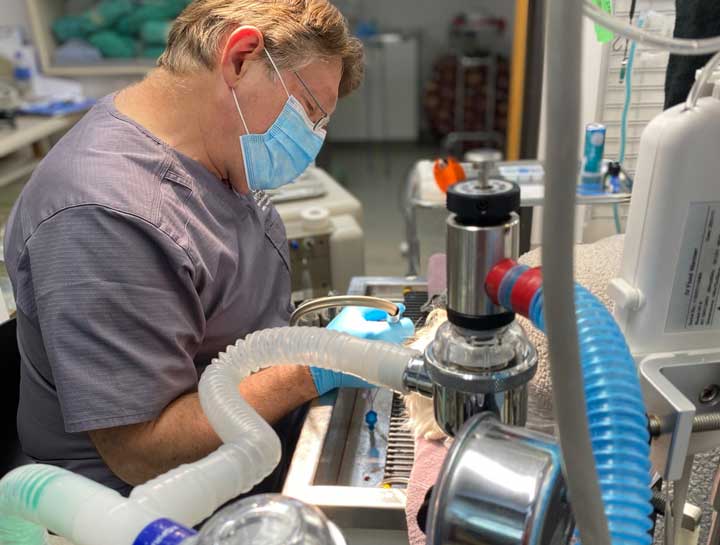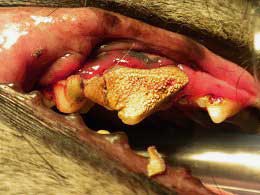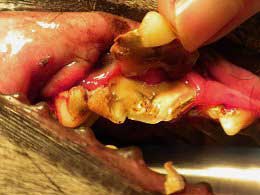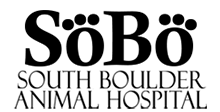Teeth Cleaning in Pets - An Inconvenient Truth

By Clinton Kay, DVM
By far one of the most common diseases we see in dogs and cats over 2 years of age is dental disease. The first teeth to show signs are usually the large back upper teeth and the upper fang teeth. Early plaque quickly turns into tartar if left unattended. Periodontal disease typically follows, oftentimes noted by bad breath and irritated gums.
I often have the conversation with my clients about home dental care and quite commonly hear: 1) they have a toothbrush at home but haven't used it yet despite good intentions, 2) They brush once a month, or 3) The groomer "cleans" their pet's teeth whenever it gets groomed (usually several times a year). I then suggest that we look at dental care logically, namely how many times a month they brush their own teeth (usually 60+ times) and in addition floss, rinse, and many also have them professionally cleaned twice a year!
Now, do you have your hair stylist clean your teeth? Do you go to your doctor if you have a tooth problem? Probably not! What would your teeth look like if you brushed once a month? How long does it take to have your teeth cleaned? Do you try to jump out of the chair or bite your dentist? Do you allow them to probe all around your teeth looking for pockets, hand scale, open wider, close a little, rinse, bite down on the x-ray plate then hold still for the x-rays to be taken? Is there suction collecting the water used to ultrasonically clean your teeth? Polishing? Probably yes. Why are x-rays taken of your teeth? To look for diseases that can't be seen below the gums. Just as you experience pain with an abscessed or broken tooth, pets do too.
My point is a proper pet teeth cleaning is no different from that which you and I receive, and virtually no animal will cooperate for the duration of the procedure, and no one is going to place a $2000+ digital x-ray sensor in the mouth of an awake animal. General anesthesia is necessary to accomplish this. While some clients are afraid to have their pet anesthetized, the fact is it's very safe when done properly. Sometimes I'm asked about veterinary hospitals that offer "anesthesia-free" cleanings. My points still stand. Very few veterinarians, let alone their staff, have actual professional dental training or have a dental x-ray unit. If they did, they would realize that it is impossible to offer proper dental care without anesthesia and x-rays. Dental procedures done correctly are time-consuming, on average 1.5 hours for "simple" cleanings with 1 doctor and 2 support staff.
We at South Boulder Animal Hospital offer superior quality pet teeth cleaning. All the doctors and technicians have advanced training in dentistry. All patients have dental x-rays taken. We take pride in our work but even we see cases that are better referred to board-certified veterinary dentists and will not hesitate to recommend that when appropriate.
Don't let this happen to your animal friend...


